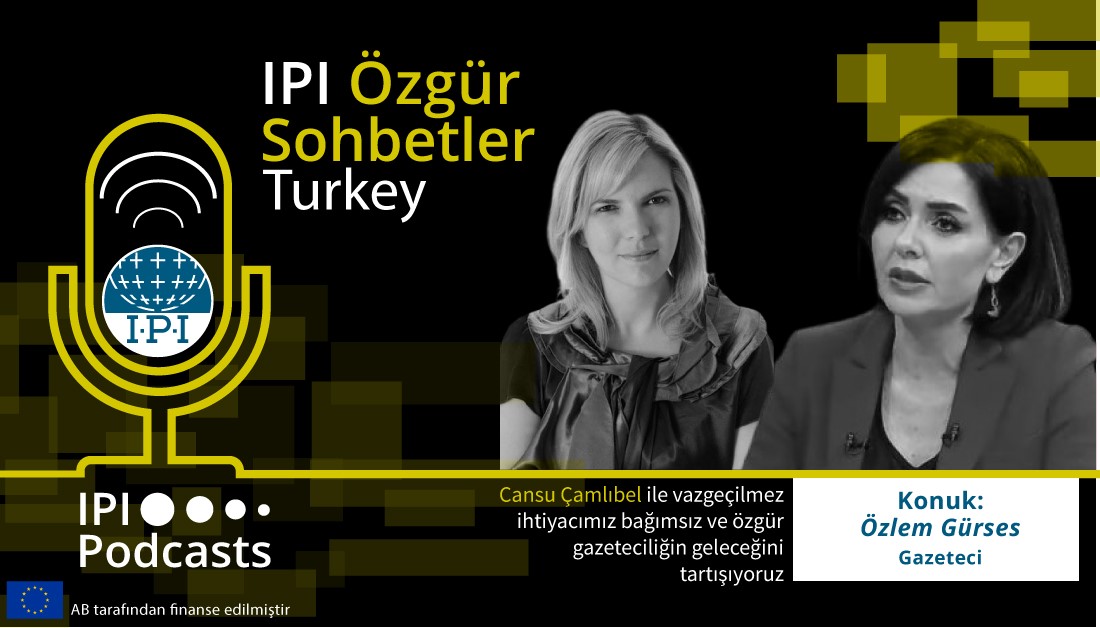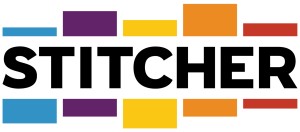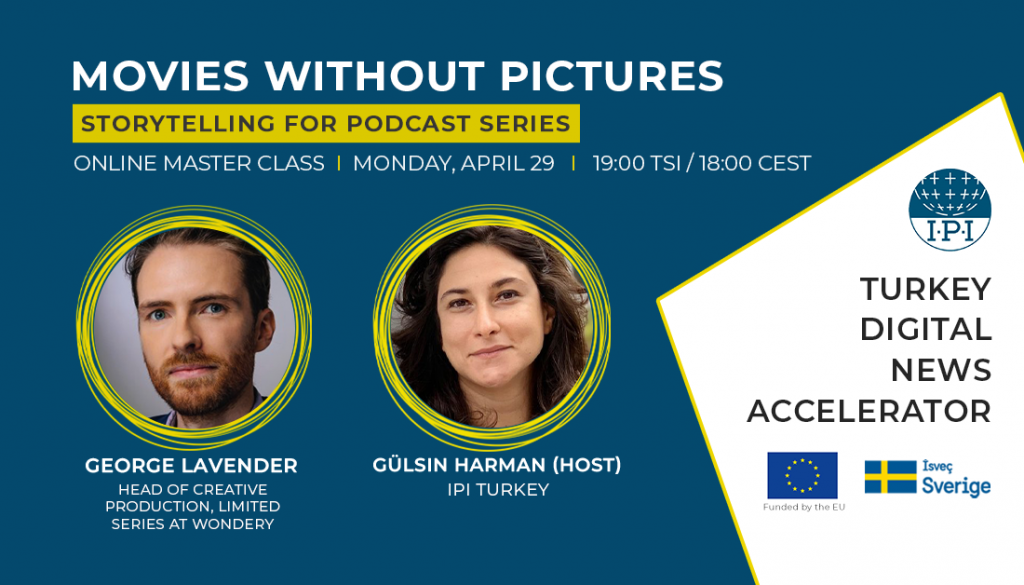Also available on:
The 16th episode of IPI’s podcast series IPI Freedom Dialogues: Turkey is out now!
In the 16th episode of IPI Freedom Dialogues: Turkey, host Cansu Çamlıbel and her guest Özlem Gürses, a well-known journalist and news anchor, discussed the difficulties and problems of working as a woman journalist in Turkey, and how to overcome them, with a look at their personal career stories. The two journalists also discussed the general transformation of the media landscape in Turkey.
Previous episodes of IPI’s Freedom Dialogues: Turkey podcasts are available here.
Gürses, who previously worked for several leading mainstream TV channels, joined Halk TV as a news anchor in 2020. She also uses her social media channels to create news content and commentaries on the daily agenda and developments in Turkey.
Regarding the harassment and attacks she has recently been exposed to on social media, Gürses stated that she sees these attacks as part of the specific period we are in and mainly stem from today’s political and male-dominated discourse. Stating that the real problem is the discriminatory expression toward women, Gürses argued that the main character of this period is the “masculine” atmosphere in politics, society and the sector.
Regarding the transformation of journalism as a profession, Gürses said that the definition of journalism has changed over the years, and a new notion of “opposition journalist” had been introduced in the meantime by those who had been placed in certain positions closed to the government in the media. “This created a very toxic climate”, she said. She added that another change was the notion of “gain”. Gürses said that the word “gain” used to symbolize an ideal, meaningful gain for the whole society, but now it all comes down to the individual interests, political parties or specific individuals. “Turkey’s value system has changed,” she said.
Underlining the concept of the “glass ceiling” which women encounter in every sector, including in journalism, Çamlıbel said that women actively work as journalists in the field, on screens and at various other levels, but the situation changes when it comes to upper management positions. Gürses agreed, stating that women continue to face discrimination in Turkey’s media although one fulfil all the necessary qualifications. She stressed that for position for which merit would normally suffice, there is another route that the person must take, which encompasses getting involved in a series of network of relationships.
Gürses described her own experience in responding to this discriminative environment and said that those who do not want to enter this network have founded their own businesses. “I was able to create a space for myself free from interest groups”, she said, referring to her YouTube news channel. Highlighting the fact that the number of women entrepreneurs in the world is increasing, Gürses added: “When we realize that we cannot be like ourselves in that network of relationships, we create a space where we can be ourselves.”
Topics covered in the podcast include:
- Discrimination and attacks against women journalists
- Discriminatory and male-dominant language used against women journalists
- The notion of the glass ceiling and its implications on media sector
- Transformation of journalism as a profession from past to present
Highlights from the episode (Özlem Gürses):
- “We did not have to be this famous as journalists. In normal democracies, we shouldn’t have been exposed to all this trouble either. We should have been ordinary journalists trying to do our best in our jobs. “
- “The main problem here is the discriminatory discourse over the female identity. One of the main characters of this period we are going through is this masculine atmosphere. “
- “Normally there is no reason not to get these [executive] positions when she can meet the journalistic principles and qualifications. However, people who get executive positions in Turkey have to pass through another, bigger network of relations.”
- “I was able to create a space for myself free from interest groups. The number of women entrepreneurs is increasing in the world, this is probably the reason. When we realize that we cannot be like ourselves in that network of relationships, we create a space where we can be ourselves.”










